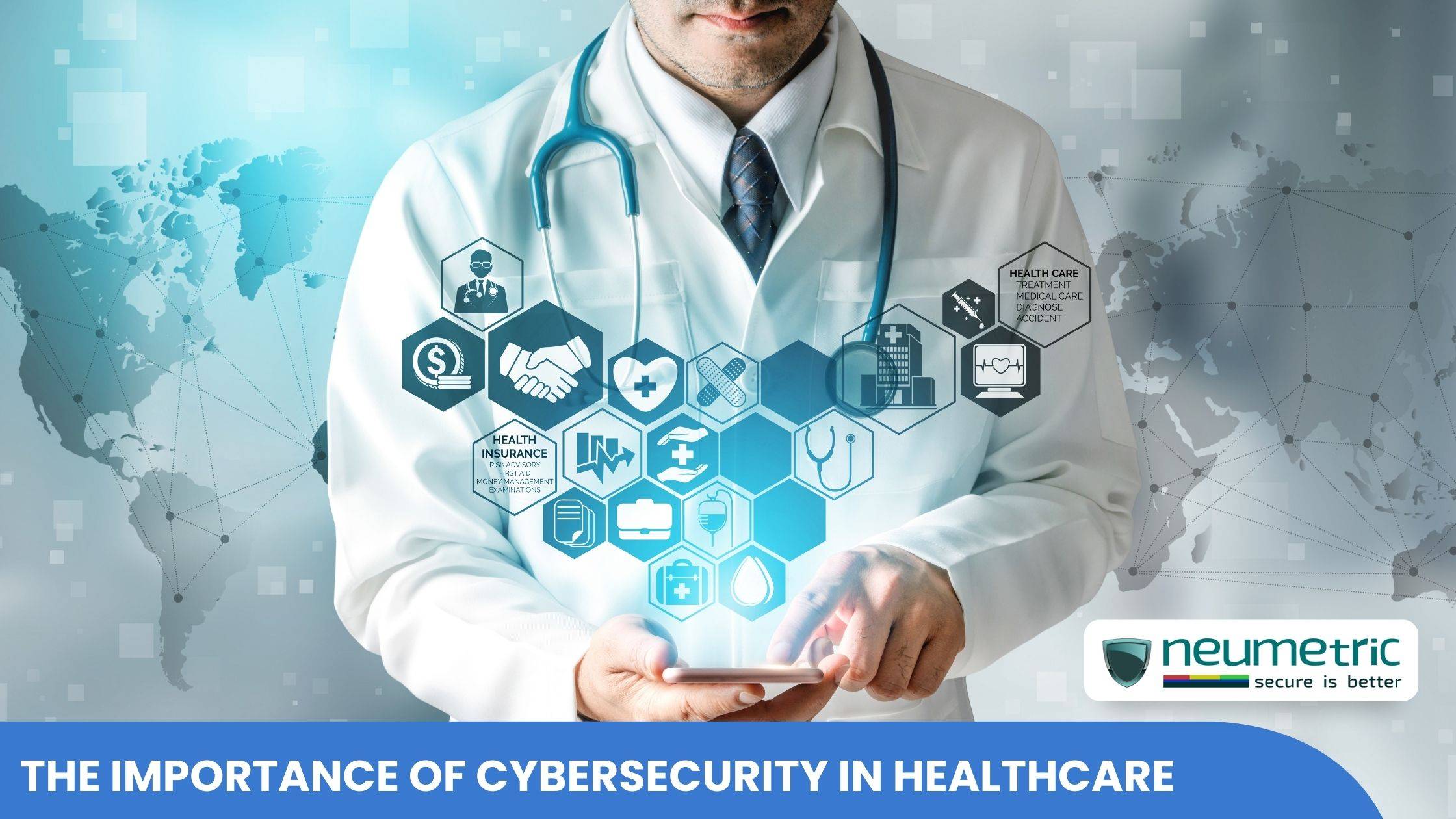Table of Contents
ToggleIntroduction
The aim of this Journal is to shed light on the paramount importance of cybersecurity in healthcare. By examining the unique challenges faced by healthcare organisations, we will emphasise the significance of implementing robust cybersecurity measures to safeguard patient data & ensure trust in the industry. As technology continues to advance & play an increasingly integral role in healthcare delivery, it is imperative that organisations recognize the potential vulnerabilities & address them proactively through effective cybersecurity practices.
By delving into the complexities of cybersecurity in healthcare, we aim to create awareness among healthcare professionals, administrators & policymakers about the pressing need to prioritise cybersecurity efforts. Through this Journal, we will underscore the crucial role that robust cybersecurity measures play in protecting patient data & preserving trust in the healthcare ecosystem.
Understanding the Unique Cybersecurity Landscape in Healthcare
The healthcare industry’s digital transformation has improved patient care & operational efficiency through technology. However, it has also exposed healthcare organisations to unique vulnerabilities & risks, necessitating a robust cybersecurity strategy. The adoption of Electronic Health Records [EHRs] has streamlined workflows but made organisations targets for cyber threats due to the sensitive patient data stored.
Interconnected systems, including medical devices & Internet of Things [IoT] technologies, pose additional risks to patient safety & privacy. Breaches not only result in financial losses but also jeopardise patient trust. Proactive cybersecurity measures, such as secure networks, encryption & regular audits, are crucial for protecting patient data & ensuring safety & trust.
To address these risks, healthcare organisations must take proactive measures. Implementing robust cybersecurity measures like secure networks & encryption safeguards patient data, maintaining trust & safety.
Protecting Patient Data & Privacy
Protecting patient data & privacy is crucial in healthcare cybersecurity. With the digitization of health records & exchange of Personal Health Information [PHI], safeguarding EHRs & sensitive patient data has become imperative. It maintains trust & confidentiality, as breaches violate patient trust & can lead to identity theft, financial fraud & compromised medical care.
To address these concerns, healthcare organisations must comply with healthcare privacy regulations, such as the Health Insurance Portability & Accountability Act [HIPAA] in the United States & the General Data Protection Regulation [GDPR] in the European Union. These regulations outline the necessary measures for protecting patient data & establish legal consequences for non-compliance.
Implementing robust access controls, user authentication methods & regular review of user access privileges is crucial to limit access to patient data to authorised personnel. Encryption protocols play a vital role in protecting patient data during transmission & storage by ensuring its unintelligibility to unauthorised individuals. Additionally, investing in data protection measures like firewalls & intrusion detection systems helps prevent unauthorised access & potential cyber attacks.
Securing Medical Devices & Internet of Things [IoT] Technologies
Securing medical devices & IoT technologies is vital in healthcare cybersecurity. With interconnected devices becoming prevalent, vulnerabilities must be addressed to protect against potential cyber threats. As medical devices like pacemakers, insulin pumps & imaging systems are connected to networks, they become susceptible to attacks. It is crucial to identify & address vulnerabilities to prevent unauthorised access or manipulation.
Ensuring secure configuration is paramount. Default passwords & settings on medical devices should be changed to unique, strong passwords & configurations that align with security best practices. Additionally, regular updates & patch management are crucial to address any known security vulnerabilities. Healthcare organisations should establish processes to promptly apply security patches & updates to medical devices, minimising the risk of exploitation.
Implementing network segmentation isolates medical devices, preventing a compromised device from affecting critical components. This containment strategy helps contain attacks & limits potential damage. Intrusion Detection System [IDS] plays a vital role by monitoring network traffic & generating alerts for suspicious activities. Deploying IDS tailored for medical devices & IoT technologies enables real-time detection & response to cyber threats, minimising their impact.
Building a Strong Security Culture
A strong security culture is crucial for combating cybersecurity threats in healthcare. This involves promoting awareness, establishing policies & fostering vigilance among staff. Training on recognizing & responding to threats empowers employees to mitigate risks. Topics should include identifying suspicious emails, using secure communication channels & safe browsing habits.
Comprehensive policies & procedures are vital to guide staff in data handling, password management & incident response. Clear guidelines on data privacy, access control & information sharing ensure employee responsibilities in protecting patient data. Password policies should emphasise strong, unique passwords & regular updates. Incident response procedures outline steps for reporting & containing security incidents.
Fostering a reporting culture & vigilance is crucial. Healthcare staff should be encouraged & supported in reporting suspicious activities. This enables prompt response & mitigation of security incidents, reducing their impact. Regular reminders & communication about cybersecurity importance reinforce a culture of vigilance among individuals.
Protecting Against Ransomware & Cyber Threats
Protecting against ransomware & other cyber threats is a critical priority for the healthcare industry. Ransomware attacks have been on the rise in recent years, targeting healthcare organisations due to the value of patient data & the potential impact on patient care.
To mitigate the risk of ransomware attacks, healthcare organisations must implement robust backup & recovery systems. Regularly backing up critical data & storing it securely offline or in an isolated network segment ensures that even if systems are compromised, data can be restored without paying the ransom. Backups should be performed frequently & the integrity of backup files should be regularly verified.
Conducting regular Vulnerability Assessments & Penetration Testing [VAPT] is essential to identify & address weaknesses in the healthcare organisation’s security infrastructure. These assessments help identify potential entry points for attackers & highlight areas that require remediation. By proactively identifying vulnerabilities, healthcare organisations can take necessary measures to strengthen their security defences.
Collaboration & Information Sharing
Engaging in industry collaborations allows healthcare organisations to pool their knowledge & resources to address common cybersecurity challenges. By sharing information about cyber threats, attack trends & vulnerabilities, organisations can collectively enhance their security strategies & response capabilities. Collaborative efforts enable the identification of new attack vectors & the development of proactive measures to mitigate risks.
Participating in healthcare-specific cybersecurity forums & organisations provides a platform for knowledge exchange & networking with peers in the industry. These forums often host conferences, workshops & webinars that focus on the latest cybersecurity trends, regulations & technologies. By actively participating in such events, healthcare professionals can gain valuable insights, learn from experts & share their experiences to collectively improve cybersecurity practices.
Staying updated with emerging threats & best practices is crucial in the ever-changing cybersecurity landscape. Healthcare organisations should closely monitor industry publications, security advisories & regulatory updates to stay informed about the latest threats & vulnerabilities specific to the healthcare sector. This knowledge empowers organisations to proactively implement necessary security measures & adapt their strategies to address emerging risks effectively.
Compliance & Auditing
Healthcare organisations must ensure compliance with industry-specific regulations such as the HIPAA in the United States, the GDPR in the European Union & other regional or national data protection laws. Compliance involves implementing necessary administrative, technical & physical safeguards to protect patient data & privacy. This includes maintaining proper access controls, conducting regular security training for staff & establishing incident response plans.
Regular security audits & risk assessments are critical to evaluate the effectiveness of security measures & identify potential vulnerabilities. These audits help organisations identify gaps or weaknesses in their security infrastructure, policies & processes. They provide an opportunity to assess the effectiveness of existing controls, detect non-compliance & determine areas for improvement.
Once audit findings are identified, healthcare organisations should take prompt action to address any vulnerabilities or deficiencies. This may involve implementing additional security controls, enhancing employee training, or revising policies & procedures. By addressing audit findings, organisations can improve their security posture & reduce the risk of data breaches or unauthorised access.
Incident Response & Business Continuity
Developing an incident response plan tailored to healthcare organisations is essential. This plan outlines the specific steps to be taken in the event of a security incident, ensuring a well-coordinated & efficient response. It should include procedures for detecting, containing & mitigating incidents, as well as clear guidelines for communication, reporting & stakeholder management.
Establishing procedures for detecting, reporting & mitigating security incidents is crucial in minimising the impact of a breach. This includes implementing robust monitoring systems & intrusion detection mechanisms to promptly identify & respond to potential threats. It is equally important to establish clear reporting channels & protocols to ensure that incidents are reported to the appropriate stakeholders, such as IT teams, incident response teams & regulatory authorities if required.
Ensuring business continuity during & after cyber incidents is paramount to minimise disruption to healthcare services. This involves implementing backup & recovery systems to restore critical data & systems in a timely manner. It is crucial to regularly test & update these systems to ensure their effectiveness. Additionally, organisations should have contingency plans in place to maintain essential operations, such as patient care & emergency response, even in the face of a cybersecurity incident.
Conclusion
With advancing technology & the digitization of health records, the protection of patient data & the establishment of trust are paramount. However, this digitization also exposes healthcare organisations to unprecedented cybersecurity risks. In this Journal, we have discussed the challenges in the healthcare industry & the essential measures to protect patient data & ensure trust. From robust access controls & encryption for data privacy to securing medical devices & IoT technologies through configuration & segmentation, every aspect of healthcare cybersecurity is crucial in mitigating risks & preserving service integrity.
Healthcare organisations must prioritise cybersecurity to protect patient data & ensure safety & privacy. Compliance, collaboration, incident response planning & business continuity are vital for a comprehensive cybersecurity strategy. Recognizing the importance of cybersecurity allows healthcare organisations to strengthen defences, minimise cyber threats & uphold patient trust. Implementing cybersecurity measures is not only a legal & ethical obligation but a fundamental responsibility to protect patient data & ensure quality healthcare in a digital era.
FAQs
What is the most important aspect of cybersecurity in healthcare?
The most important aspect of cybersecurity in healthcare is protecting patient data & ensuring privacy. Healthcare organisations handle vast amounts of sensitive information, including personal health records, financial data & other Personally Identifiable Information [PII]. Safeguarding this data from unauthorised access, breaches & misuse is paramount to maintaining patient trust & confidentiality.
What is the role of cybersecurity in the Indian healthcare system?
The role of cybersecurity in the Indian healthcare system is crucial. With the increasing digitization of healthcare services in India, there is a growing need to protect patient data, secure medical devices & ensure the integrity of healthcare systems. Cybersecurity measures are necessary to prevent data breaches, protect against ransomware attacks & maintain the confidentiality & privacy of patient information. Implementing robust cybersecurity practices can help bolster the trust of patients & stakeholders in the Indian healthcare system.
What is the conclusion for cybersecurity in healthcare?
Cybersecurity in healthcare is paramount as technology advances & digital systems become more integral to healthcare delivery. Protecting patient data & ensuring trust are critical, requiring measures like access controls, encryption, security audits & incident response planning. These actions help healthcare organisations mitigate risks, safeguard patient information & uphold the integrity of healthcare services.
What are the 5 benefits of using cyber security?
The five (5) benefits of using cybersecurity are:
- Data protection: Cybersecurity measures help protect sensitive data from unauthorised access, breaches & theft, ensuring the confidentiality & privacy of information.
- Business continuity: Effective cybersecurity measures enable organisations to maintain their operations even in the face of cyber threats or incidents, minimising disruption & ensuring continuity of services.
- Regulatory compliance: Adhering to cybersecurity best practices helps organisations meet regulatory requirements & avoid penalties or legal consequences for non-compliance.
- Reputation & trust: Robust cybersecurity practices build trust among customers, clients & stakeholders, enhancing an organisation’s reputation & credibility.
Cost savings: Investing in cybersecurity upfront can save organisations significant financial losses associated with data breaches, legal consequences, reputational damage & potential regulatory fines.





